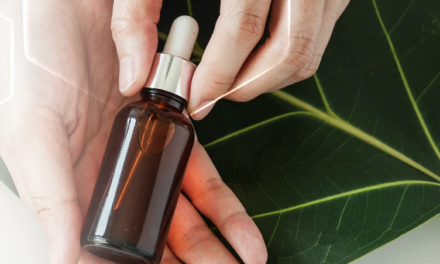Trips to perform reconstructive surgery procedures in low- and middle-income countries (LMICs) are cost-effective in terms of reducing the impact of disability on the lives of patients, reports a special topic paper in the September issue of Plastic and Reconstructive Surgery®, the official medical journal of the American Society of Plastic Surgeons (ASPS).
“Our study demonstrates the cost-effectiveness of one charitable organization’s plastic surgery outreach program to LMICs,” comments ASPS Member Surgeon Kevin C. Chung, MD, MS, of University of Michigan Medical School, Ann Arbor. “The results show that reconstructive surgeries performed during short-term surgical trips are economically sustainable.”
Plastic Surgery Trips to LMICs Yield Return on Investment
The researchers analyzed the economic impact of surgical trips performed by ReSurge International – an organization that seeks to provide reconstructive surgical care and build surgical capacity in developing countries. From 2014 to 2017, ReSurge made 22 trips to eight countries in Asia, Africa, and South America. Average cost was about $25,000 per surgical trip.
During these trips, surgeons performed reconstructive surgery procedures in 756 patients. About 60 percent of the patients were children aged 9 years or younger. Cleft lip/palate repair was the most common procedure, followed by burn contracture release, eyelid (ptosis) surgery, and removal of soft tissue masses. The researchers analyzed the cost-effectiveness of these procedures, focusing on the cost to prevent one lost year of healthy life, or “disability-adjusted life year” (DALY).
In terms of reducing disability, the benefits of surgery were greatest for patients with cancer-related conditions, followed by cleft lip/palate and hand conditions. On average, the number of DALYs averted was about two per trip; cost-effectiveness ranged from $52 to $11,410 per DALY saved.
Based on World Health Organization criteria, 21 of the 22 trips were classified as cost-effective or very cost-effective. The exception was an “educator” trip performed mainly to teach local surgeons, where only two actual procedures were performed. (While educating local physicians is an important part of sustainable global health efforts, the cost-effectiveness study didn’t account for those benefits.)
“We found that trips treating more complex and disabling surgical conditions were more cost-effective compared to those treating less complex conditions,” Dr. Chung and coauthors write. On cost-benefit analysis, the trips averted a total of 1,720 DALYs. Total economic benefit was about $9.8 million, or $13,000 per patient – “a substantial return on investment.”
Lack of access to surgical care is a major cause of lost life and disability in LMICs. Organizations such as ReSurge seek to address this issue through surgical trips, performing a high volume of specialized surgical procedures over a short period of time.
The new study is one of the first to analyze the cost-effectiveness of trips to perform specialized surgical procedures such as reconstructive surgery. “Given that LMICs are limited resource settings, decisions regarding resource allocation and surgical prioritization are necessary for the sustainability of global surgery,” the researchers write.
The results support the cost-effectiveness of reconstructive surgery trips to LMICs – particularly when a high volume of procedures are performed in patients with complex surgical conditions. “Moving forward, other plastic surgery outreach organizations must implement a policy to attempt to alleviate as much disability as possible when performing surgical trips,” Dr. Chung and colleagues conclude. “Economic analyses will help provide policymakers with the necessary information to develop an effective strategy to decrease cost and improve the outcomes of the interventions performed in LMICs.”
Plastic and Reconstructive Surgery® is published by Wolters Kluwer.
Click here to read “Evaluating the Economic Impact of Plastic and Reconstructive Surgical Efforts in the Developing World: The ReSurge Experience”
Article: “Evaluating the Economic Impact of Plastic and Reconstructive Surgical Efforts in the Developing World: The ReSurge Experience” (doi: 10.1097/PRS.0000000000005984)
About Plastic and Reconstructive Surgery
For more than 70 years, Plastic and Reconstructive Surgery® has been the one consistently excellent reference for every specialist who uses plastic surgery techniques or works in conjunction with a plastic surgeon. The official journal of the American Society of Plastic Surgeons, Plastic and Reconstructive Surgery® brings subscribers up-to-the-minute reports on the latest techniques and follow-up for all areas of plastic and reconstructive surgery, including breast reconstruction, experimental studies, maxillofacial reconstruction, hand and microsurgery, burn repair, and cosmetic surgery, as well as news on medico-legal issues.








